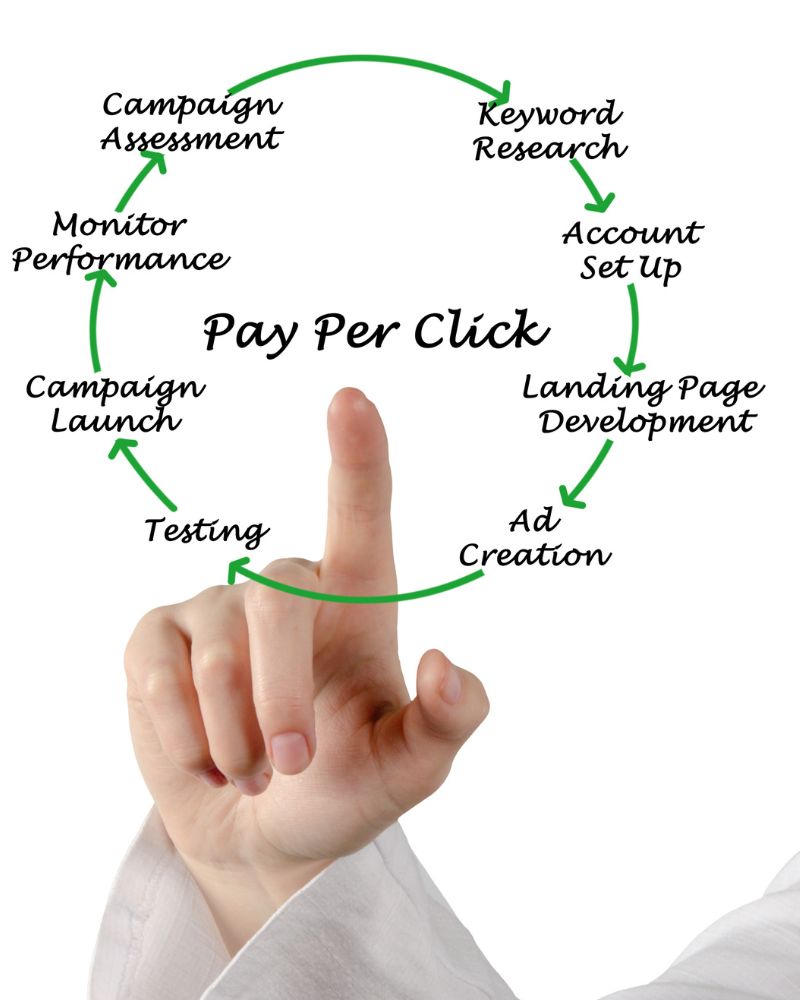As a digital marketer, I have seen firsthand the impact that pay per click (PPC) advertising can have on a business. PPC is a powerful tool that can help businesses of all sizes increase their online visibility, drive traffic to their website, and ultimately, boost sales. In this article, I will discuss the benefits of PPC advertising, how it works, and how to create a successful campaign. I will also cover some common mistakes to avoid and provide an overview of the different PPC platforms available.

Introduction to Pay Per Click Advertising
PPC advertising is a form of online advertising where businesses pay each time a user clicks on one of their ads. These ads are typically displayed at the top of search engine results pages (SERPs) or on social media platforms. One of the biggest advantages of PPC advertising is that businesses only pay when someone clicks on their ad, which means they are not wasting money on ads that are not generating any clicks.
Another advantage of PPC advertising is that it allows businesses to target specific audiences based on factors such as location, interests, and search terms. This means that businesses can ensure their ads are being shown to the right people, which can increase the chance of those people clicking on the ad and ultimately making a purchase.
Benefits of Pay Per Click Advertising
PPC advertising offers a number of benefits for businesses. Firstly, it can help increase brand awareness by putting your business in front of potential customers who may not have heard of you before. Secondly, it can drive targeted traffic to your website, which can increase the likelihood of conversions. Thirdly, it can provide valuable insights into your target audience, including which keywords and ads are generating the most clicks and conversions.
PPC advertising can also be highly cost-effective. Businesses can set a budget for their campaigns, which means they can control their spending and ensure they are not overspending on advertising. Additionally, because businesses only pay when someone clicks on their ad, they can be confident that they are only paying for ads that are actually generating traffic to their website.
How Pay Per Click Advertising Works
PPC advertising works by allowing businesses to bid on keywords that are relevant to their products or services. When someone searches for one of these keywords, the search engine will display ads that are relevant to the search term. The ads are displayed at the top of the search results page, which means they are highly visible to users.
When someone clicks on one of these ads, the business that placed the ad is charged a fee. The amount of the fee depends on the competitiveness of the keyword and the amount that the business bid on the keyword. The higher the bid, the more likely the ad is to be displayed and clicked on.
Understanding Keywords and Ad Targeting
Keywords are a critical component of any PPC advertising campaign. Choosing the right keywords can ensure that your ads are being shown to the right people, which can increase the chance of those people clicking on the ad and ultimately making a purchase.
When choosing keywords, it is important to consider factors such as search volume, competition, and relevance to your business. There are a number of tools available that can help you identify the best keywords for your campaign, including the Google Keyword Planner and SEMrush.
Ad targeting is also an important consideration when creating a PPC advertising campaign. Ad targeting allows businesses to show their ads to specific audiences based on factors such as age, location, interests, and search terms. By targeting the right audience, businesses can ensure that their ads are being shown to people who are most likely to be interested in their products or services.
Creating a Successful Pay Per Click Advertising Campaign
Creating a successful PPC advertising campaign requires careful planning and execution. The first step is to define your campaign goals and set a budget. Once you have done this, you can begin researching keywords and creating ad copy.
When creating ad copy, it is important to write compelling headlines that grab the user’s attention and encourage them to click on the ad. The ad copy should also be relevant to the user’s search query and provide a clear call to action.
Monitoring and adjusting your campaign on a regular basis is also important. This can involve adjusting your bids, testing different ad copy, and refining your targeting. By monitoring your campaign and making adjustments as needed, you can ensure that you are getting the most out of your advertising budget.
Setting a Budget and Measuring ROI
Setting a budget for your PPC advertising campaign is crucial. This will ensure that you are not overspending on advertising and that you are getting the most out of your budget. It is also important to measure your return on investment (ROI) to ensure that your advertising is generating a positive return.
To measure ROI, you will need to track conversions, which can include purchases, form submissions, or other actions that are valuable to your business. You can use tools such as Google Analytics to track conversions and determine the ROI of your advertising campaigns.
Common Pay Per Click Advertising Mistakes to Avoid
While PPC advertising can be highly effective, there are a number of common mistakes that businesses make when creating and running their campaigns. These include targeting the wrong audience, using the wrong keywords, and failing to monitor and adjust the campaign on a regular basis.
Another common mistake is failing to set a budget for the campaign. This can lead to overspending on advertising and a negative ROI. It is important to set a budget for your campaign and monitor spending on a regular basis to ensure that you are not overspending.
Pay Per Click Advertising Platforms – Google Ads, Bing Ads, and Social Media Advertising
There are a number of different PPC advertising platforms available, including Google Ads, Bing Ads, and social media advertising. Each platform offers its own unique advantages and disadvantages, and businesses should choose the platform that best suits their needs and budget.
Google Ads is the most popular PPC advertising platform and offers a wide range of targeting options and ad formats. Bing Ads is another popular platform that offers lower competition and cost-per-clicks than Google Ads. Social media advertising, including Facebook Ads and Twitter Ads, can also be highly effective for businesses looking to target specific audiences.
Choosing the Right Pay Per Click Advertising Platform for Your Business
When choosing a PPC advertising platform, it is important to consider factors such as your target audience, budget, and campaign goals. Google Ads is a good choice for businesses looking to reach a wide audience, while Bing Ads may be a better choice for businesses with a smaller advertising budget.
Social media advertising can be highly effective for businesses looking to target specific audiences based on interests and demographics. Facebook Ads, for example, allows businesses to target users based on factors such as age, gender, and interests.
Conclusion: The Power of Pay Per Click Advertising
PPC advertising is a powerful tool that can help businesses increase their online visibility, drive targeted traffic to their website, and ultimately, boost sales. By understanding how PPC advertising works and following best practices, businesses can create successful campaigns that generate a positive ROI. Whether you choose Google Ads, Bing Ads, or social media advertising, PPC advertising can be a highly effective way to promote your business online.


